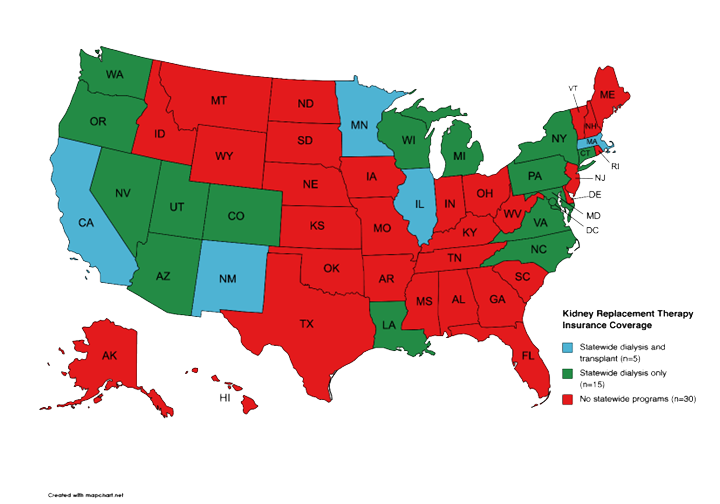Mission
To modify the services and/or conditions provided by state Emergency Medicaid programs thereby expanding healthcare coverage of kidney replacement therapy for undocumented individuals with kidney failure.
Kidney health professionals across the United States are already taking charge to change state policy, improving access to care and reducing the strain on our health care system. Many states have state-wide provisions for maintenance dialysis for undocumented people through qualifying "kidney failure" as a covered condition under Emergency Medicaid, inclusion of undocumented people in Medicaid reform, or through state-wide high risk insurance pools.
In February 2019, the Colorado Department of Health Care Policy and Financing opted to include "ESRD" in Colorado's definition for "emergency medical condition," which expanded access to scheduled thrice-weekly hemodialysis to undocumented immigrants. Many other states have modified their Medicaid language to allow for standard dialysis, and some states have included other treatments for kidney failure, such as vascular access and home dialysis. Read more here.
Currently, 20 states and DC have statewide provisions for dialysis, and 5 states have provisions for transplant.

The benefits to providing undocumented dialysis: